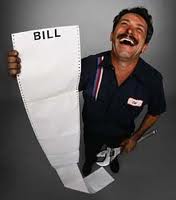 The best way to avoid getting taken advantage of when it comes to auto repair is to be educated and prepared. Know as much as you can about how your vehicle works and how to identify common car problems. Educate yourself on your state’s consumer protection rights and how to select a good auto mechanic.
The best way to avoid getting taken advantage of when it comes to auto repair is to be educated and prepared. Know as much as you can about how your vehicle works and how to identify common car problems. Educate yourself on your state’s consumer protection rights and how to select a good auto mechanic.
To avoid rush decisions; make sure you have a qualified auto mechanic lined up before you need one. To find the best mechanic in your area, ask for recommendations from friends, family, co workers, online car forums and other people you trust. You can contact a local consumer protection agency or the state Attorney General’s office for records of grievances against the repair shop.
It is a good idea to make a personal inspection of the repair shop before taking your car there for repairs. Look for evidence of certifications and awards that show that the staff is qualified, or at least meets the standard skills necessary in basic technical areas. Make sure to check the dates on the certificates, and also check to see if the names on the certificates match the names on the current staff’s name tags.
Ask the service writer or auto mechanic about the staff’s experience with your car’s particular make and model. Some repair shops are highly qualified on certain types of cars, but don’t have much experience on others.
Always get a written estimate before having any repairs performed on your car. This estimate should identify the problem to be repaired, the parts needed, and the anticipated labor charge. The estimate should also specify that the shop will contact you for approval before they do any work exceeding a specified amount of time or money.
Some state laws actually require this statement. If you are authorizing the work over the phone, say from your office during a work day, have the service writer fax over a copy of the work order, and make sure to review it as soon as you get it. Problems encountered later on in the repair are often simple miscommunication from both parties at the beginning of the repair cycle.
Find out how the shop calculates labor prices, whether by flat rate or by actual hours worked. Some repair shops charge a flat rate for labor based on industry standards of the time required to complete that auto repair. Other shops charge the actual time the technician worked on the repair. If the labor time on your final bill is way off from the initial estimate, find out why.
There may be legitimate exceptions encountered while working on your car, or you may be paying for a new auto mechanic’s learning curve or mistakes. If you feel that you need to get a second opinion for expensive or complicated repairs, be prepared to pay a diagnostic charge for the labor time spent at both shops.
It is fair to pay the mechanics for their time, and the insight from another experienced technician could save you a bundle in the long run.
Unfortunately there ARE some bad apples out there….it’s up to you to spot them.
[sc:SIGNATURE_FULL ]
[sc:cta_button url=”/auto_repair_advice.html” text=”Save $1000 on Auto Repair” ]